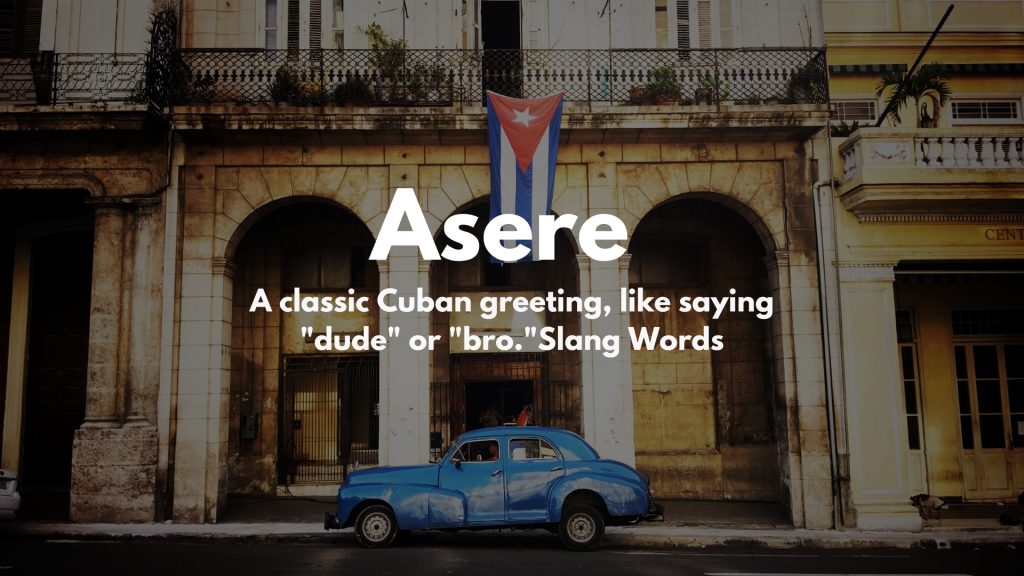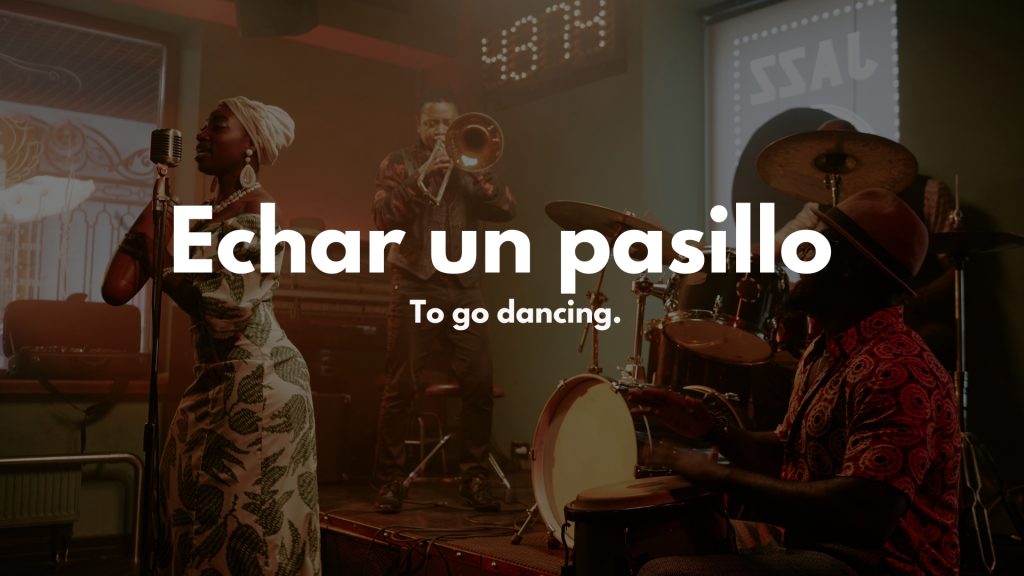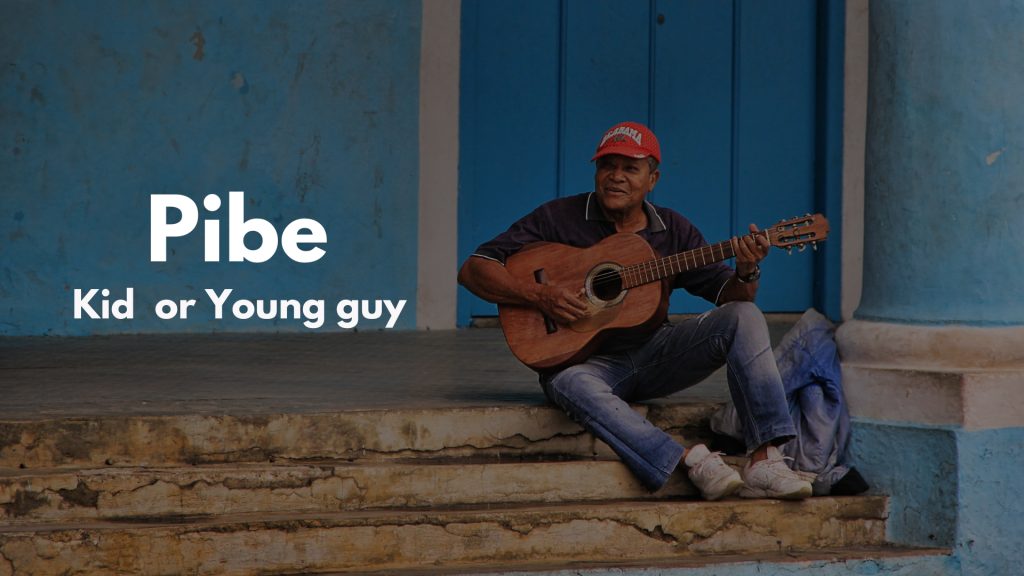Cuban vocabulary is full of colorful slang that shows off the island’s rich culture. This everyday language includes all sorts of phrases, from talking about daily life to expressing feelings. It’s shaped by Cuba’s history and the changes in society, reflecting the lively spirit of the Cuban people.
Anyone interested in language or culture might find Cuban slang fascinating. It’s a unique example of how language changes with the times and social conditions. Comparing these Cuban expressions to those from other Spanish-speaking areas can really highlight what makes each dialect special.
The basics of Cuban slang
To really get Cuban culture, it’s crucial to know the local slang. Slang shows how vibrant and unique Cuban expressions are. It gives you a peek into their humor, traditions, and daily life.
Using slang makes talking with locals more genuine, especially in relaxed and social situations. Knowing these phrases helps you blend in better.
Easy Cuban Slang Words
Learning Cuban slang is a great way to get better at everyday conversations in Cuba. For example, ‘acere’ means friend, and ‘pinchar’ means to work. These words are key for casual talks.

Also, ‘jamar’ means to eat and ‘camello’ is what they call a bus. Knowing these words helps you blend in and talk more easily with the locals.
| Cuban Slang | Meaning | Example Sentence |
|---|---|---|
| Asere | Dude / Bro | Asere, qué bolá? (Dude, what’s up?) |
| Jama | Food | Vamos a buscar jama. (Let’s get some food.) |
| Fula | Money (often USD) | No tengo fula. (I don’t have money.) |
| Bárbaro | Amazing / Awesome | Ese carro está bárbaro! (That car is awesome!) |
| Tremendo | Intense / Huge | Tremenda fiesta anoche! (Crazy party last night!) |
| Guagua | Bus | Voy en la guagua. (I’m taking the bus.) |
| Chucho | Joking / Teasing | No me des tanto chucho. (Stop teasing me.) |
| Temba | Older woman | Esa temba está linda. (That older woman is beautiful.) |
| Duro | Skilled / Strong | Eres un duro en el béisbol. (You’re great at baseball.) |
| Frutabomba | Papaya | Me gusta el jugo de frutabomba. (I like papaya juice.) |
Master Por and Para today! Learn the key differences with simple rules.
Cuban slang phrases
Diving into Cuban slang really helps you get the hang of how people talk there. When someone says ‘Está volado,’ they’re really happy.
If you hear ‘En candela,’ watch out, there’s trouble brewing. Offering a hand? That’s ‘Tirar un cabo.’

And if times are tough, they might say ‘Jamar un cable,’ meaning they’re strapped for cash. Chatting with locals using these phrases not only breaks the ice but lets you really soak in the Cuban way of life.
It makes every conversation a bit more real and a lot more fun.
| Cuban Slang Phrases | Meaning | Example Sentence |
|---|---|---|
| Echar un pasillo | To go dancing | Esta noche vamos a echar un pasillo. (Tonight, we’re going dancing.) |
| Se formó el titingó | Chaos broke out | Se formó el titingó en la fiesta. (Things got crazy at the party.) |
| Estar en talla | To be ready / prepared | Estoy en talla para el examen. (I’m ready for the test.) |
| Meter caña | To go full speed / push hard | Tenemos que meter caña en el trabajo. (We have to work hard.) |
| Darle botella | To give a ride | Me das botella hasta mi casa? (Can you give me a ride home?) |
| No cojas lucha | Don’t stress | No cojas lucha, todo estará bien. (Don’t stress, everything will be fine.) |
| Tirar un cabo | To help out | Puedes tirarme un cabo con esto? (Can you help me out with this?) |
| Estar fajao | To be in a fight | Estoy fajao con mi primo. (I’m in a fight with my cousin.) |
| Ser un yuma | To be a foreigner (usually American) | Ese turista es un yuma. (That tourist is a foreigner.) |
| Coger botella | Hitchhiking | Voy a coger botella hasta la ciudad. (I’ll hitchhike to the city.) |
Spanish Slang for Friend
In Spanish slang, ‘amigo’ usually means ‘friend.’ But different places have their own words.

In Cuba, people say ‘acere’ a lot. It’s like saying ‘dude’ or ‘mate.’ It shows how casual and friendly Cubans are with each other.
| Spanish Slang for Friend | Meaning | Example Sentence |
|---|---|---|
| Puro | Best buddy | Él es mi puro de toda la vida. (He’s my best friend for life.) |
| Consorte | Homie / Close friend | Qué pasa, consorte? (What’s up, bro?) |
| Socio | Business partner or friend | Mi socio y yo tenemos un plan. (My buddy and I have a plan.) |
| Hermanazo | Big bro | Ese es mi hermanazo del alma. (That’s my brother from another mother.) |
| Mango | A really attractive friend | Ese mango es muy guapo. (That guy is really handsome.) |
| Mi sangre | My blood (close friend) | Tú eres mi sangre, no te preocupes. (You’re my family, don’t worry.) |
| Compay | Old-school term for friend | Oye, compay, qué haces? (Hey friend, what are you doing?) |
| Broki | Cubanized version of “bro” | Qué bola, broki? (What’s up, bro?) |
| Chamaco | Young friend | Ese chamaco es mi pana. (That kid is my buddy.) |
| Caballo | A strong or skilled friend | Mi caballo juega increíble al fútbol. (My buddy plays amazing soccer.) |
Other Country-Specific Spanish Slang
Just like ‘acere’ in Cuba shows friendship, each Spanish-speaking place has its own slang.
In Mexico, people say ‘cuate’ for friend, much like ‘acere’.
In Argentina, ‘che’ is what they use to get someone’s attention.

These words really show the culture and everyday life of these places.
| Specific Spanish Slang | Meaning | Example Sentence |
|---|---|---|
| Chévere (Venezuela) | Cool / Awesome | Ese carro está chévere. (That car is cool.) |
| Pata (Peru) | Friend | Voy a salir con mis patas. (I’m going out with my friends.) |
| Pibe (Argentina) | Kid / Young guy | Ese pibe juega bien al fútbol. (That kid plays soccer well.) |
| Güey (Mexico) | Dude / Bro | No manches, güey! (No way, dude!) |
| Chamba (Peru, Venezuela) | Job / Work | Tengo que buscar chamba. (I need to find a job.) |
| Facha (Argentina) | Style / Look | Tiene mucha facha ese chico. (That guy has great style.) |
| Plata (Colombia) | Money | No tengo plata para salir. (I don’t have money to go out.) |
| Jato (Peru) | House | Vamos a mi jato después. (Let’s go to my place later.) |
| Pelado (Ecuador) | Kid / Youngster | Ese pelado es muy travieso. (That kid is very mischievous.) |
| Lana (Mexico) | Money | Necesito lana para el viaje. (I need money for the trip.) |
Spanish Terms for Family Members: From Parents to Cousins
Explore More International Spanish Slang
Exploring Spanish slang from around the world shows us how diverse the Spanish-speaking countries are. Every place has its own version of Spanish that tells us about its culture, history, and what life is like there.

For example, the lively slang in Mexico and the vivid expressions in Spain really open our eyes to how colorful and varied the Spanish language can be. It’s not just about learning new words; it’s about getting a deeper understanding of the people and places behind them.
| International Spanish Slang | Meaning | Example Sentence |
|---|---|---|
| Boludo (Argentina) | Idiot / Dude (friendly) | Che, boludo, qué haces? (Hey dude, what are you doing?) |
| Tío (Spain) | Guy / Dude | Ese tío es muy divertido. (That guy is very funny.) |
| Bacán (Peru, Chile) | Cool / Awesome | Ese concierto estuvo bacán! (That concert was awesome!) |
| Fiaca (Argentina) | Laziness | Tengo mucha fiaca hoy. (I feel really lazy today.) |
| Joder (Spain) | To annoy / To mess up | Deja de joder, por favor! (Stop annoying me, please!) |
| Parcero (Colombia) | Friend | Qué más, parcero? (What’s up, friend?) |
| Coger (Spain) | To take (careful: has different meaning in Latin America!) | Voy a coger el tren. (I’m going to take the train.) |
| Vale (Spain) | Okay / Alright | Vale, nos vemos mañana. (Alright, see you tomorrow.) |
| Majo (Spain) | Nice / Pleasant | Es una chica muy maja. (She’s a very nice girl.) |
| Peña (Spain) | Group of friends | Voy con mi peña a la fiesta. (I’m going with my friends to the party.) |
Tips for using Cuban Spanish slang
Knowing Cuban Spanish slang can make your conversations flow better and help you connect with the culture. To get good at using Cuban slang, dive into local media like movies or music.
Chat with people who speak it daily. It’s key to know when it’s right to use each slang word. This approach doesn’t just improve your Spanish; it helps you fit in better with Cuban people.
Conclusion
Learning Cuban slang is more than just adding words to your vocabulary. It helps you get a real feel for Cuban culture, making it easier to connect with people there.
Plus, getting to know the slang from various Spanish-speaking places can improve how well you communicate worldwide. It really shows how different and unique languages can be, even within the same language.
So, diving into these local expressions is definitely worth it if you want to understand and appreciate the diversity of Spanish.
Boost Your Confidence in Speaking and Writing – Join Lingua Viva!
Born in Cali, but raised in London, Juan Pablo has led an interesting life. He has an undergraduate degree in Foreign Language and 10+ years of experience. Juan Pablo has taught and worked as a professor and interpreter in Spanish, English, and French languages. He prides himself on having a ‘situational teaching style’, which means he caters lessons to fit student needs. He is serious about teaching, responsible, professional, clear, and concise.











